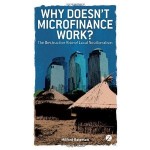Aid and conditionalities are the “carrots and sticks” of the conventional direct approach to fostering economic development. The economic theory of agency is the most sophisticated theoretical treatment of the direct carrots and sticks approach to influencing human behavior. In view of the outcomes of the conventional approach, it might be worthwhile to explore alternative indirect approaches that focus on enabling clients to act more autonomously rather than overriding or undercutting the clients’ actions (or “agents’ behavior”) with improved “carrots and sticks.” Are there inherent limitations on the direct approach that will not be solved with better crafted “agency contracts” or closer monitoring of the agents? This paper traces the intellectual history of indirect approaches from Socrates to modern thinkers such as Wittgenstein, Gandhi, and McGregor. One of themes is that constructivist and active learning pedagogies constitute an indirect approach wherein the teacher does not directly transmit knowledge to the learner through training and instruction. These pedagogies translated into social and economic development viewed as learning-writ-large form the basis for an alternative indirect approach to fostering development.
Helping Self-Help: The Fundamental Conundrum of Development Assistance
For more than half a century, there have been government programs and international organizations devoted to socially engineering development. As evidenced by the recent United Nation’s Millennium Project report, surprisingly little has been learned as to why that mode of development assistance is ineffective. This paper takes an interdisciplinary approach to explaining the old idea that the best form of assistance is to help people help themselves but that this cannot be “engineered” as is amply evidenced by over a half-century of failures. There is a conundrum: how can the helpers supply help that furthers rather than overrides or undercuts the goal of the doers helping themselves? Otherwise, it is actually “unhelpful help.” The overriding and undercutting forms of unhelpful help are analyzed and strategies for autonomy-respecting help are presented.
Four Enterprise Creation Schemes: Putting Jane Jacobs to Work
This note presents policy ideas about entrepreneurship and enterprise creation derived from or, at least, inspired by Jane Jacobs’ writings.
Micro-Finance and other Development Fads
These are the slides for a 2012 talk given at USC along with Milford Bateman and Lamia Karim on mircofinance.
Investment Climate for Who?
This is one of my few writings on globalization. It started as a memo for the World Bank Chief Economist that “complicated” the issue of “improving the investment climate.”
Parallel Experimentation
This is an unpublished working paper about the process of parallel experimentation which I take to be a process of multiple experiments running concurrently with some form of common goal, with benchmarking comparisons made between the experiments, and with the “migration” of discoveries between experiments wherever possible to ratchet up the performance of the group.
It’s not the What but the How that counts
These are slides from a lecture sponsored by The Philanthropic Enterprise given in New York October 2012.







